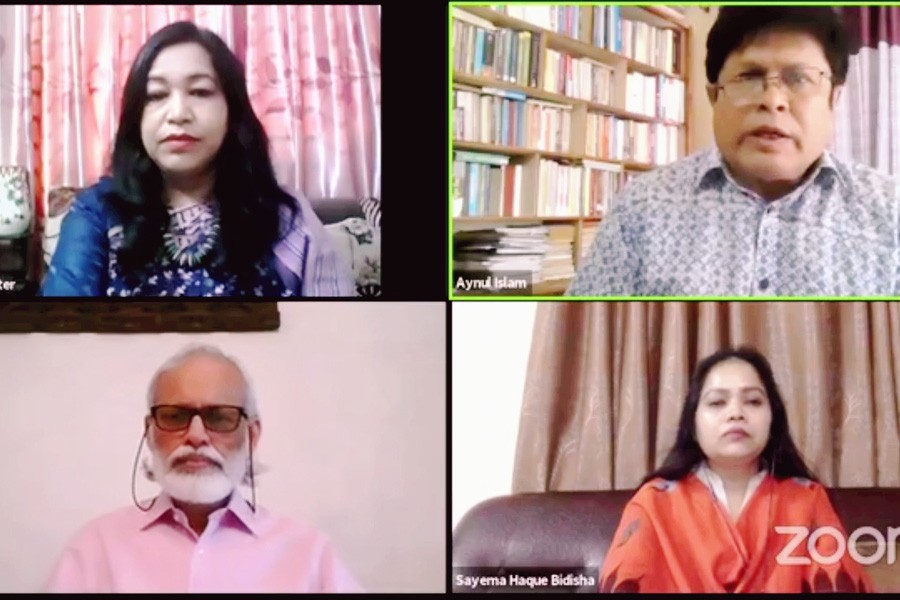ICSA Bangladesh, a non-profit service organisation arranged its 19th dialogue titled ‘Labour Market Challenges in Covid-19 Situation: Bangladesh Perspective,' on April 17. Professor Aynul Islam, department of Economics at Jagannath University, moderated the virtual programme, while Rizwanul Islam, a former advisor of ILO Geneva, Dr Saima Haque Bidisha, professor of Economics at Dhaka University (DU) and Salma Akter, DU sociology professor were present as guest speakers.
What kinds of employment threats could the second wave of Covid-19 bring? Dr. Rezwanul Islam believes that the ongoing wave poses the biggest threat for the small and cottage industry which is struggling to survive. He recommends government incentives like last year.
“The economy needs to be kept strong in this situation; otherwise people's lives and livelihoods will be threatened. The government had taken some measures last year to revive the economy which needs to be replicated this year too, although big companies were the main beneficiaries.”
Dr Rezwanul Islam also talked about employment which can be created by investing in small infrastructure, rather than big projects only, such as at the local level and rural areas and urban alleys.
"We need to come up with an alternative plan at this stage. We mostly think about the garments industry only, but we need to think of more export-oriented alternative industries than just relying on this one industry.”
Professor Saima Haque Bidisha talked about incentives that are already involved. She mentioned the deployed incentives by the government within the last one year has been effective.
“The positive side of the government's incentive was that it was timely. However, last time we noticed that a large part of the country remained out of incentive privileges. At this stage, we have to identify those who were out of this privilege and help them.”
She emphasised the need to provide low-interest loans to small entrepreneurs and businesses to keep them afloat. In this case, at the rural level, MFIs, NGOs, and various private sector organisations must come up with innovative programmes to help those who are unable to come to the mainstream banking channels.
“If this lockdown is to be implemented, food must be delivered to people's homes at the grassroots level; the government must be involved with various voluntary organisations and NGOs to disburse the incentives to the people.”
Professor Salma Akter discussed the social issues of lockdown, job loss of women, specially in the garments industry and their urban to rural migration.
“In this case, they (those whole are migrating) are being affected in two ways. First, they are losing economic independence and facing gender-based violence. Also, those who are 35-40 years old among the job-losing population can no longer return to the job market afterwards as they will be replaced by younger workforce.”
Asked how she views workers’ migration from a social point of view, Professor Akter remarked that the biggest problem is attitude towards works. She mentioned the recent much talked about instance of a man not being recognised by his family as he is selling watermelon after losing his previous job. Such instances of looking down upon any occupation, especially when it is a time of crisis, is unexpected.


